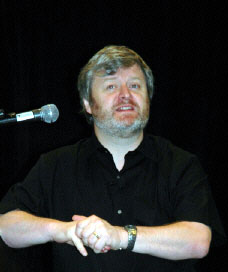Phipps calls for patent reform


A few things to emphasize before I get into this. First, this was on Phipps' personal blog, not his Sun blog. Second, he wasn't talking about doing away with patents, even doing away with software patents. He was talking about patent reform.
"The real issue is that today's software patents breach the social contract on which the concept of a patent is based," Phipps wrote. "I'm convinced that the reform that's needed is a root-and-branch reform of the very concept of the patent, carried out in the light of the facts that the network is the computer and that open source is its soul." (Please, before commenting, read his whole post.)
Here is where I stand. The patent process was designed to be open source, and it was designed to protect how you did something, not the fact you did it. It was designed to acknowledge and spur innovation, not work against it.
If you wanted to patent a mousetrap a century ago, your patent application needed complete drawings, maybe even a working model. These were published, so other people could look at your work and make a better mousetrap.
The problem today is we're allowing patents on the idea of a mousetrap. An O'Reilly post on the Blackboard case at O'Reilly Radar, which prompted Phipps' post, is a good example of this. The patent seems to cover e-learning itself, not just Blackboard's methods for implementing it. This has led to boycott attempts against Blackboard and other PR nightmares.
Software and business method patents both have this danger inherent in them. This is why they were never granted, until a series of court decisions in the 1980s and 1990s opened the door. (The Congress has yet to speak on it.)
Before Congress does speak on patent reform, I hope folks like Phipps and O'Reilly will be those who educate them.